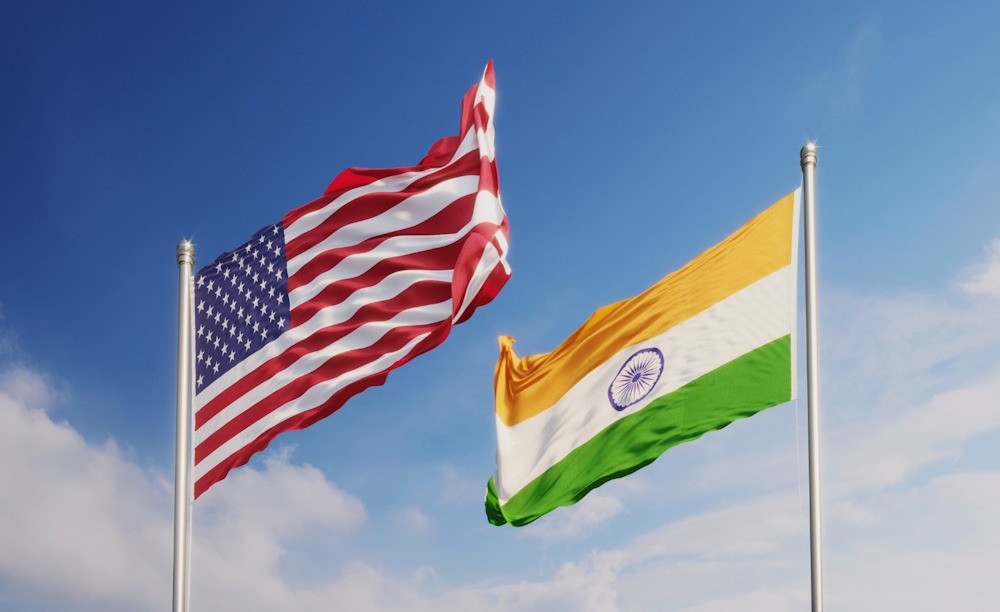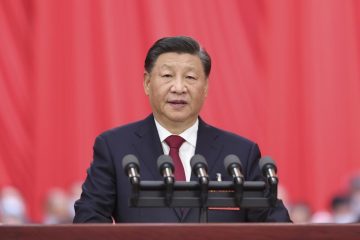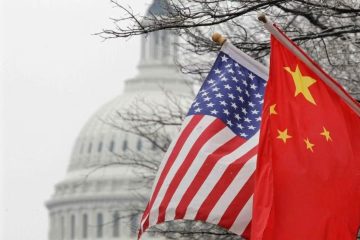India has a great chance of seizing US business from China

In 2018, as President Trump initiated his first trade war with China, Zetwerk emerged as a key player, facilitating connections between global customers and Indian suppliers specializing in sheet metal and precision components. Currently, the company boasts a robust network comprising over 10,000 suppliers, alongside the operation of seven proprietary electronics manufacturing facilities. The company’s newest facility, dedicated to the production of components for washing machines and various other appliances, commenced operations in March.
According to Josh Foulger, the head of Zetwerk’s electronics division, the initial trade war was a catalyst for India’s growth, and the ongoing second trade conflict initiated by Trump has the potential to be transformative. “Is this India’s moment?” inquired Foulger. “Affirmative.”As high tariffs continue to restrict access for many Chinese exporters to U.S. consumers, companies are actively seeking alternative production and export locations. This shift presents a significant opportunity for India in the global market.
India may not seize the opportunity presented to it. The world’s most populous nation has consistently lagged behind not only China but also smaller countries with more agile governments. The workforce engaged in agriculture significantly surpasses that of the manufacturing sector. Leading high-tech companies and retailers are expressing concerns that India presents greater challenges for business operations compared to China and Vietnam. Factors contributing to this perception include extensive government regulations, active labor unions, and a stringent stance on compliance and taxation. Vietnam, with a population of 100 million, has surpassed India in iPhone exports to the United States. Current market research estimates indicate that Vietnam now contributes approximately 20% to the final production of iPhones.
The majority of Indian products are subject to a mere 10% tariff when imported into the United States. The current situation may hold significant implications for India, reminiscent of the pivotal changes following the Cold War, particularly during the financial crisis triggered by the dissolution of the Soviet Union, which was then India’s primary trading partner. In a strategic move, India has embraced foreign investment while significantly reducing the extensive regulations previously known as the “license raj,” leading to accelerated economic growth.
India’s recent election, which saw Prime Minister Narendra Modi’s ruling Bharatiya Janata Party lose its outright majority, highlighted a significant voter sentiment regarding dissatisfaction with employment opportunities and stagnant wages.According to Tanvi Madan, a specialist on India at the Brookings Institution, the country currently finds itself in a pivotal period for potential openings, as there are no local or national elections anticipated for approximately one year. “India has consistently expressed concerns regarding the implications of global integration,” stated Madan. “The focus should be on what the world can offer in return.”
India’s Foreign Minister, S. Jaishankar, recently emphasized the disruption in global trade, stating that it has prompted a reevaluation of the country’s approach to its openness to the global economy, which he described as having a certain skewed nature that requires correction. “Reflecting on China three decades ago and the current situation in Vietnam, it is evident that local government officials are increasingly focused on creating a conducive environment for foreign investment,” stated an executive from a U.S. firm with a longstanding presence in India.
Companies continue to encounter challenges in India, where regulatory inconsistencies and perplexing interpretations of tax laws can result in penalties or protracted legal disputes. India is seeking $1.4 billion in back taxes from a subsidiary of German automaker Volkswagen, covering a period of 12 years. Additionally, the country is pursuing an equivalent amount in penalties, claiming that the company misclassified shipments imported into India to avoid customs duties. The company refutes any allegations of misconduct and has taken steps to contest the order through legal channels.
Smartphones serve as a prime illustration of India’s capabilities when it focuses its efforts effectively. Ten years ago, India’s foray into mobile phone manufacturing saw annual exports hovering around $250 million. The current figure has surpassed $22 billion, with Apple representing approximately 75% of that total. A factory in Karnataka, operated by Taiwan’s Foxconn, is set to commence operations this year, with plans to eventually boost annual production by 20 million phones, positioning itself as a competitor to Foxconn’s flagship facility in the adjacent state of Tamil Nadu. Officials report that a burgeoning network of suppliers is emerging to support the final assembly process. Corning, the New York state-based manufacturer known for its scratchproof glass used in Apple phones, is set to commence production in Tamil Nadu later this year. Smartphones exemplify the potential of India when it focuses its efforts effectively.
Industry leaders report that smartphones are reaping the rewards of government focus and assistance, particularly through manufacturing subsidies. India announced this month its decision to extend subsidies for phone components, which are primarily imported. Additionally, the country has upgraded the freight terminal at the main airport in Tamil Nadu to alleviate bottlenecks that have previously caused delays for vehicles transporting products on the highway.
Foulger, an executive known for linking global corporations with Indian suppliers, previously served as the country head for Foxconn in India before transitioning to Zetwerk last year. The country, he noted, continues to require enhancements in the critical area of consistency, which is essential for a robust global supply chain. He emphasizes the importance of planning ahead, a principle he frequently reiterates when suppliers cite a series of public holidays as the cause for delays or when workers attribute tardiness to Bangalore’s infamous traffic congestion. “All of these elements must function like a 128-piece orchestra working in harmony to achieve this outcome,” stated Foulger. “The path ahead will be a journey that requires time and effort; however, due to India’s intrinsic strengths, I am confident that we will succeed.”










